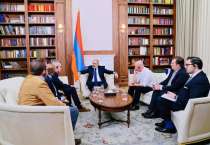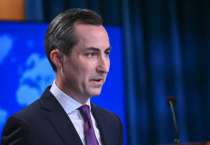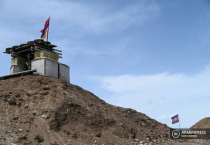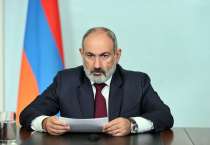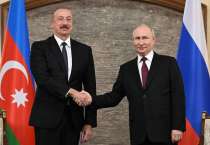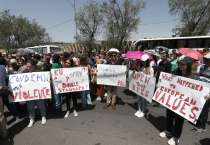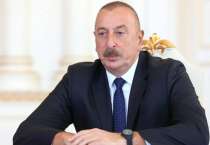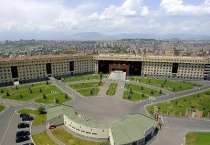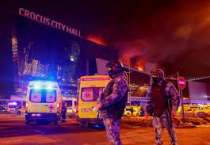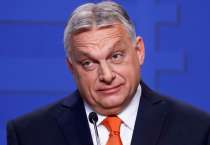Russia boasts it is beating sanctions, but its longer-term prospects are bleak
Russia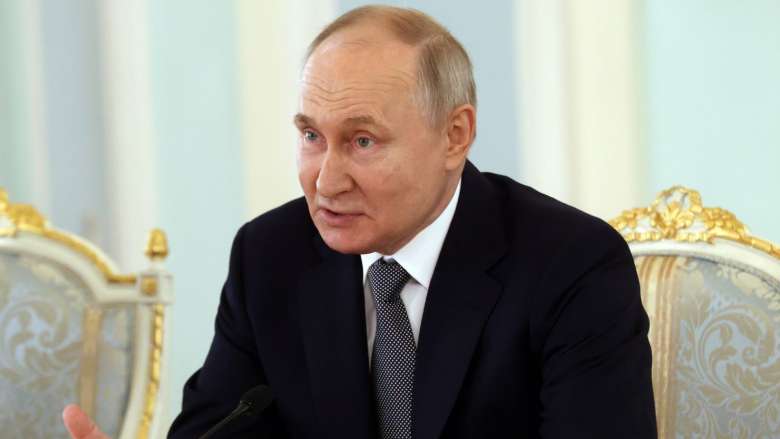
Russian President Vladimir Putin has taken to gloating about Russia’s resistance to international sanctions and its supposed economic resilience, despite the best efforts of the United States and its G7 partners to choke off Moscow’s oil revenues and starve it of military technology.
Scoffing at Europe’s economies, Putin said at a recent event: “We have growth, and they have decline… They all have problems through the roof, not even comparable to our problems.”
It’s true that, as the second anniversary of Russia’s full-scale invasion of Ukraine approaches, the Russian state is earning billions from oil and diamond exports, its military factories are working flat out, and many Russian banks can still access the international financial system.
But the longer-term outlook is far less rosy. War is distorting the economy and sucking resources into military production at an unsustainable pace.
Rostec, a Russian state-owned defense company, increased the production of armored vehicles nearly fivefold in the year to November, according to its chairman Sergei Chemezov. There have been similar vast increases in the production of munitions and drones.
But building things in order for them to be destroyed on the battlefield is not a path to economic success.
A game of cat and mouse
Since February 2022, Western governments have sought to reduce Russia’s revenues from exports of energy and minerals, and starve it of technology and finance, impairing its ability to wage war.
In the process they have imposed sanctions on more than 15,000 Russian entities and individuals, according to a database created by the Atlantic Council.
But sanctions take time to have an effect. There are still plenty of customers for what Russia does best – selling oil and other commodities. Much of Asia has not signed up to sanctions, providing Russia with ready markets for its oil, as well as with high-technology equipment once bought from the West. India and China now account for 90% of Russian oil exports, according to Deputy Prime Minister Alexander Novak.
In trying to limit Russian profits from oil, the G7 nations announced that Western vessels and insurers could only be used when the oil is priced at less than $60 a barrel. So Russia developed a new network of shippers to get round the restrictions and keep selling to India and China.
As global crude prices declined toward the end of 2023, so did Russian revenues, but they were still $15.2 billion in November alone.
The Atlantic Council think tank, which tracks the impact of sanctions, reckons Russia is moving 71% of its oil exports through a growing ghost fleet, whose ownership and registration details are camouflaged.
Shipping analysts Windward estimated in September that as many as 1,400 vessels had been used to move Russian oil in defiance of western sanctions, many of them sailing without insurance.
Christine Abely, author of “The Russia Sanctions: The Economic Response to Russia’s Invasion of Ukraine,” says the oil price cap “has become subject to more widespread evasion over time, both due to direct violation of the terms of the cap and by Russia building out its own shadow fleet to transport oil.”
Western officials are looking at ways to tackle this evasion. In October, the US Treasury Department sanctioned companies registered in Turkey and the United Arab Emirates for carrying Russian crude sold above the price cap.
But clamping down on the evasion is difficult in the opaque world of merchant shipping.
In addition, the Atlantic Council notes, most Russian banks maintain access to SWIFT – a messaging service that connects financial institutions around the world – enabling them to conduct international transactions and settle cross-border payments. Only some banks have been disconnected from the platform as part of sanctions.
The think tank also calculates that Russia imported over $900 million worth of battlefield and dual-use technology per month in the first half of 2023.
The UK National Crime Agency said recently: “Russia is trying to procure UK sanctioned goods through intermediary countries… using complex supply chains and alternative supply routes to acquire sanctioned products.”
A Financial Times analysis of official Russian data found that, as access to precision tools from the West has been closed off, Russia increased imports of advanced machine tools known as computer numerical control (CNC) from China tenfold. Taiwanese and South Korean enterprises have also sold such tools, which can be used in military industries, the FT found.
Russia has used intermediaries that conceal the ultimate destination and end-use of items of everything from ball bearings to navigational equipment with growing confidence. The US Treasury is trying to keep up, says Abely, by going after these intermediaries. Last month it sanctioned several Turkish companies; Chinese and UAE companies have also been sanctioned.
It’s a painstaking process, but it raises the costs to Russia. “Sanctions have restricted the access of Russia’s military industry to sophisticated technology and Russia has been forced to pay a premium for substitutes from other markets,” the Bank of Finland says in a recent report. It estimates that the cost to Russia of Chinese goods useful to its war effort rose 78% from 2021 to 2023.
Sanctions against individuals, including the freezing of their assets and the confiscation of superyachts, have not led to a groundswell of opposition to the Kremlin or even the war amongst the elite, though a couple of oligarchs have voiced their opposition (from relatively safe foreign shores.) Very few of their assets have been confiscated by Western countries – and the Kremlin has given them a stark choice: support the motherland or lose everything.
There’s little sign that ordinary Russians have been drastically impacted by Western sanctions.
While it is much more difficult for Russians to visit Europe, hundreds of thousands take vacations in Turkey, Egypt and Thailand. The Russian travel industry reported that Russian tourists made 7 million foreign trips in the first nine months of last year, up 50% from the same period in 2022.
Luxury goods stores in Moscow are full of Western goods, many of which come via third countries like Kazakhstan.
Some sanctions are already having an impact on consumers. The Russian airline S7 said in December that about 20% of its aircraft grounded because their US-made engines cannot be repaired, leading to fewer flights and staff cuts.
Sanctions will have a long-term impact on the Russian economy, according to the European Commission. In an assessment published in mid-2023, the European Union’s executive arm said the effects “will further intensify over time, as the measures have a structural, long-term impact on Russia’s budget, financial markets, foreign investment and its industrial and technological base.”
One senior US official, Geoffrey Pyatt, told the Financial Times recently: “This is something that we’re going to have to stick to for years to come, as long as Putin persists in this war.”
According to Rachel Lyngaas, chief sanctions economist at the US Treasury, Russia’s leaders “face increasingly painful trade-offs that will sacrifice long-term prospects — as underinvestment, slow productivity growth, and labor shortages will only deepen.”
So while Russia may have so far subverted the impact of sanctions, they will contribute to a gloomy long-term prognosis.
A bleak future
The cost of the war in Ukraine is already having a profound effect. Russia is likely to devote a staggering 40% of its budget to the military in 2024 – 8% of national income.
Sectors like education and healthcare suffer accordingly as more resources are poured into the war effort.
The Bank of Finland says the economic growth touted by Putin is coming from “relatively low-technology branches such as manufacturing of fabricated metals, where Russia is less reliant on imports and thereby less affected by Western sanctions.”
“The current focus on military production has diverted resources from Russia’s civilian industries, making it more difficult to rely on branches that typically form the backbone of advanced economies to provide long-term growth.”
In turn this has worsened problems such as labor shortages and inflation.
The result is that Russia’s economy is overheating. Unemployment is less than 3%, according to official figures, a record low in post-Soviet Russia.
Officially, inflation is at about 7%, but the head of Russia’s central bank, Elvira Nabiullina, suggested in December that it was rising again, stoked by cash hand-outs to soldiers and their families as well as high consumer borrowing. In September 2023, consumer borrowing for subsidized mortgages was nearly 50% higher than a year earlier.
In response, the central bank has raised its key interest rate from 7.5% to 16% in just six months. Nabiullina said the Russian economy was like a car trying to go too fast. “It can go, it might even be quick, but not for long,” she said.
One-third of Russian businesses surveyed last autumn said they could no longer afford new loans because of the rise in borrowing costs. Meanwhile, the government has provided subsidized loans worth billions to big state companies and consumers who want to buy property, further aggravating inflation.
These problems are exacerbated by a chronic skills shortage caused by the human cost of the war and the emigration of tens of thousands of young professionals. According to staffing agencies, more than 80% of Russian companies are struggling to find and retain skilled workers. That in turn has reduced productivity.
Russia’s great egg shortage is one consequence of this suddenly warped economy. The price of eggs has risen 40% in a year, prompting complaints on social media and one meme in which a man on bended knee offers his beloved a box of eggs instead of a ring. She declines, saying it’s much too expensive.
Producers are unable to finance imports of chickens and are also short of labor, while their costs are rocketing. Putin was asked about the price of eggs at his recent end-of-year news conference, but offered only vague assurances that the problem was being addressed.
The economy is further distorted by Russia’s growing reliance on China for technology and as a customer for its oil and gas. Nearly half of Russia’s imports now come from China. To Putin it’s a blossoming partnership; Beijing may relish it as growing dependence. But if selling components to Russia puts at risk access to much bigger markets in the West, Beijing might change its mind.
Despite Putin’s boasts, the Russian state has a primitive reliance on raw materials, especially oil, for its revenues. Russian consumer brands are years behind those in the West and China. Who, for example, would buy a Russian-made laptop or fridge?
The long-term impact of international sanctions will aggravate these distortions.
The International Energy Agency has forecast that Russian oil and gas exports could fall 40% to 50% over the next seven years as equipment goes unreplaced and foreign investment is stymied. To this end, the United States recently announced sanctions on a Russian liquefied natural gas project, Arctic LNG-2, essentially putting on notice any entity that might buy gas produced there.
“Sanctions by their nature are unlikely to trigger regime change or upset Russia’s military strategy entirely,” Abely told CNN, but they have the “longer-term potential to change the trajectory of Russia’s economy by limiting foreign direct investment and affecting technological development.”
Sanctions are about gnawing away at Moscow’s capabilities. They will hurt, over time.
But in the meantime Russia has the advantage of mass over its much smaller neighbor Ukraine, in everything from the production of artillery shells (and now drones) to reservoirs of labor. The best that Ukraine can do (and only so long as the pipeline of Western technology keeps pumping) is to fight the Kremlin’s war machine to a standstill. And hope that Russia’s economic faultlines worsen faster than most expect.





 Dina Titus submits bill on sanctions against Azerbaijan to US Congress
Dina Titus submits bill on sanctions against Azerbaijan to US Congress Russia MP: I’m ashamed of my colleagues' assessments of events in Karabakh
Russia MP: I’m ashamed of my colleagues' assessments of events in Karabakh Joint Russia-Turkey monitoring center closing in Karabakh
Joint Russia-Turkey monitoring center closing in Karabakh Overchuk: Russia awaits Armenia's Pashinyan at EAEU summit in Moscow
Overchuk: Russia awaits Armenia's Pashinyan at EAEU summit in Moscow Russia MFA spox comments on Putin's words regarding Karabakh’s status
Russia MFA spox comments on Putin's words regarding Karabakh’s status MFA spox: Russia has always perceived the Armenian Genocide as its own pain, misfortune
MFA spox: Russia has always perceived the Armenian Genocide as its own pain, misfortune Armenia parliament not received any letter from Russia, legislature speaker's spox says
Armenia parliament not received any letter from Russia, legislature speaker's spox says We mourn together with Armenian people: Embassy of Russia to Armenia
We mourn together with Armenian people: Embassy of Russia to Armenia US cautions 'potential threat of sanctions' over Pakistan-Iran agreements. Samaa TV
US cautions 'potential threat of sanctions' over Pakistan-Iran agreements. Samaa TV We are satisfied with how security problems in region are solved with participation of Russia: Aliyev at meeting with Putin
We are satisfied with how security problems in region are solved with participation of Russia: Aliyev at meeting with Putin

















































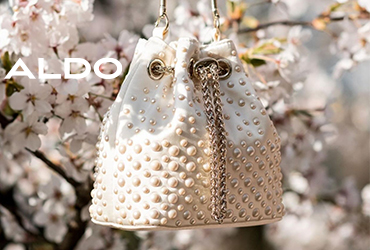
 Most Popular
Most Popular 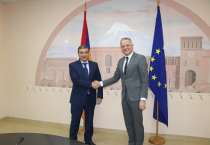
 EU ambassador visits Armenia nuclear plant
EU ambassador visits Armenia nuclear plant